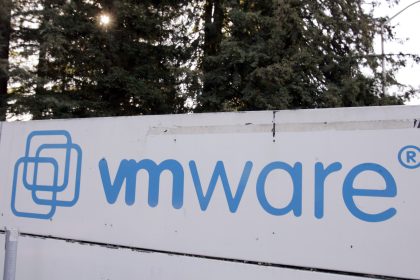Democrats Revive Fight for Net Neutrality

WASHINGTON — Two senators and a member of the House of Representatives are working to ensure internet providers deliver equitable service to customers, banning the practice of throttling service and blocking access to certain content.
Sens. Ed Markey, D-Mass., and Ron Wyden, D-Ore., and Rep. Doris Matsui, D-Calif., announced their Net Neutrality and Broadband Justice Act Thursday that would amend the Communications Act of 1934 to “codify what we all already know to be true, that in 2022 broadband is not a luxury. Broadband is essential,” Markey said at a press conference Thursday.
The bill adds a clause to the Communications Act of 1934, which created the Federal Communications Commission, that says internet providers must provide equitable service to customers.
The Senate bill has 26 Democratic co-sponsors, as well as the two independents who caucus with the Democrats.
It would restore the FCC’s ability to create rules like the 2015 regulations that prohibited internet service providers blocking consumers from accessing certain sites or applications or artificially slowing down data.
The FCC under former President Donald Trump repealed those rules, making them voluntary or allowing companies to self-regulate.
In 2021 President Joe Biden signed an executive order to restore those net neutrality rules.
The commission has yet to take up the politically charged point of contention.
The commission is currently deadlocked with four members — two Democrats and two Republicans. Biden’s nominee to fill the fifth seat is Gigi Sohn, a long-time net neutrality advocate who has had her nomination held up for months.
The two Democrats on the commission — Chairwoman Jessica Rosenworcel and Commissioner Geoffrey Starks — both endorsed the net neutrality bill that would give the commission oversight.
Over the past year the bipartisan commission has worked together to expand broadband access through a variety of programs, working with the National Telecommunications and Information Administration to spend the billions of dollars allocated through the bipartisan infrastructure law as part of the Internet for All initiative.
“Congress has just made historic investments in broadband deployment in our country … and we are proud of that,” Markey said. “But the question before us now is this: Will we seize this opportunity and make sure our nation’s broadband future works for everyone? Or will we accept the Trump FCC’s destructive regulatory approach that harms competitors and harms consumers in our country?
“By classifying internet as an essential service, we will empower the Federal Communications Commission to create a just broadband future for everyone in our country,” Markey said.
The lawmakers and commissioners agreed the commission has the ability to regulate internet service providers, and they welcomed this law as a reinforcement.
“I support net neutrality because it fosters this openness and accountability. While I trust the FCC has the authority it needs to adopt net neutrality rules, legislation that helps ensure it is the law of the land is welcome,” Rosenworcel said in a statement.
Net neutrality advocates are also heralding the lawmakers for attempting to solidify these regulations.
Jessica J. González, co-CEO of Free Press Action, spoke at the press conference about how firefighters had their data throttled while fighting fires in California last year.
She commended this law for providing Americans the security that “our communications and our broadband service work” when we need them most, González said.
The Trump administration’s “abdication of responsibility must be rectified and we are pleased that Sens. Markey and Wyden and Rep. Matsui are moving to do just that,” said Greg Guice, director of government affairs at Public Knowledge, in a statement urging Congress to act quickly.
“This legislation is more than just a bill for net neutrality. It will reinstate the FCC, the expert agency, with the authority to promote policies to help consumers access broadband — repeatedly recognized by Congress as an essential service — as well as promote competition and public safety while strengthening the resiliency of these networks during disasters,” Guice said.
Wyden added during the press conference that now is a critical time to solidify the FCC’s power to ensure an open internet because people need to have a place to share their opinions and ideas when the country is discussing critical issues such as climate change, reproductive freedoms and a litany of other issues.
“The internet is the shipping lane of the 21st century. It’s really how you move [the] valuable cargo of ideas,” Wyden said.
Madeline can be reached at [email protected] and @MadelineHughes
























